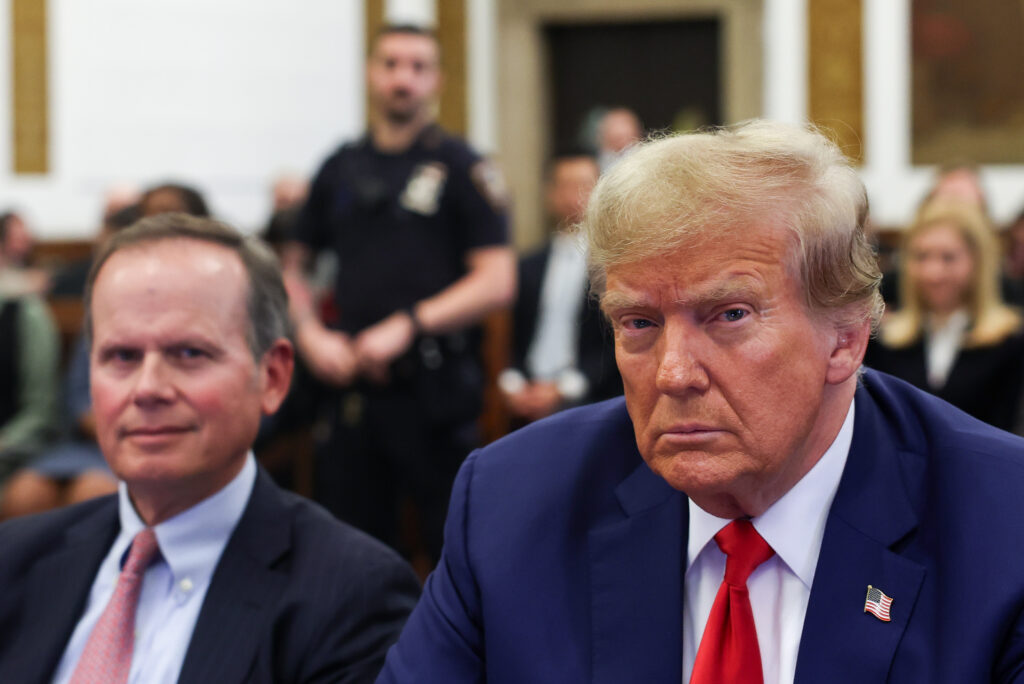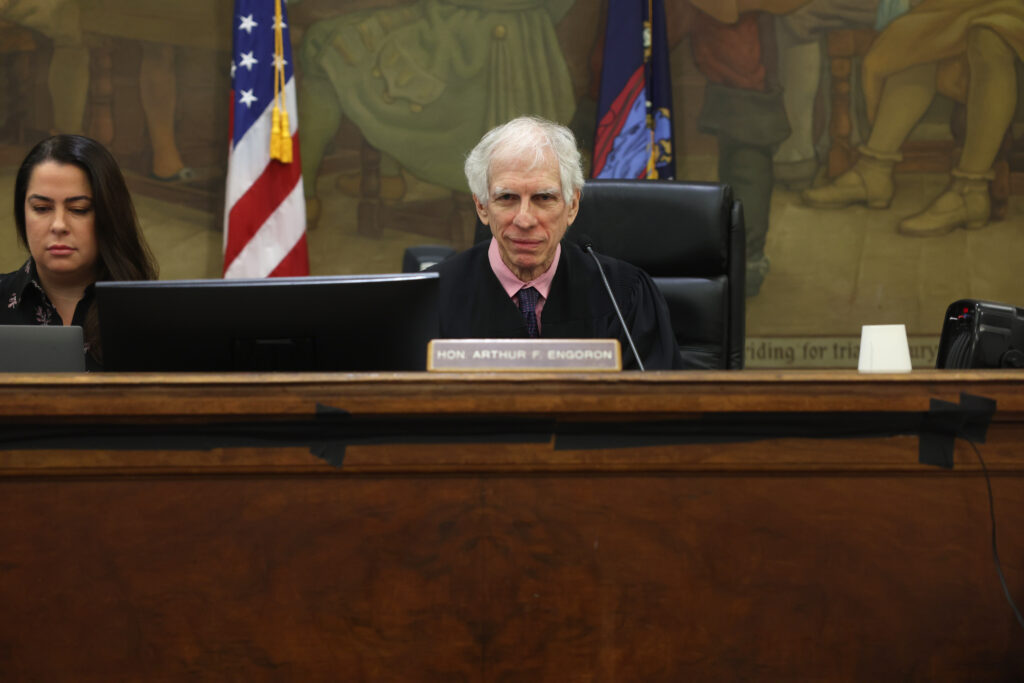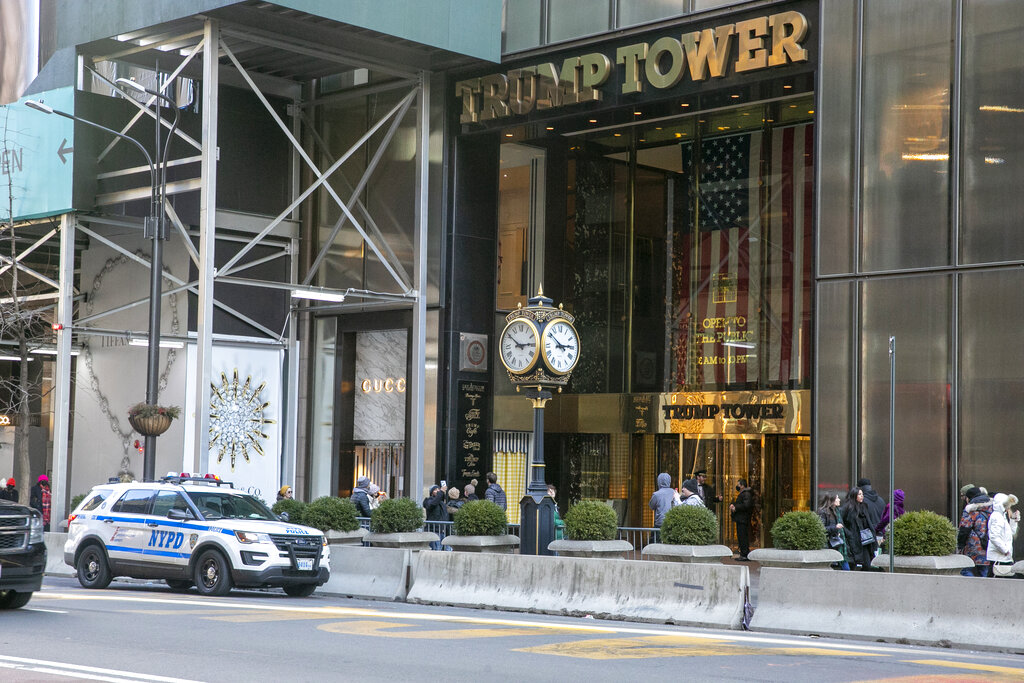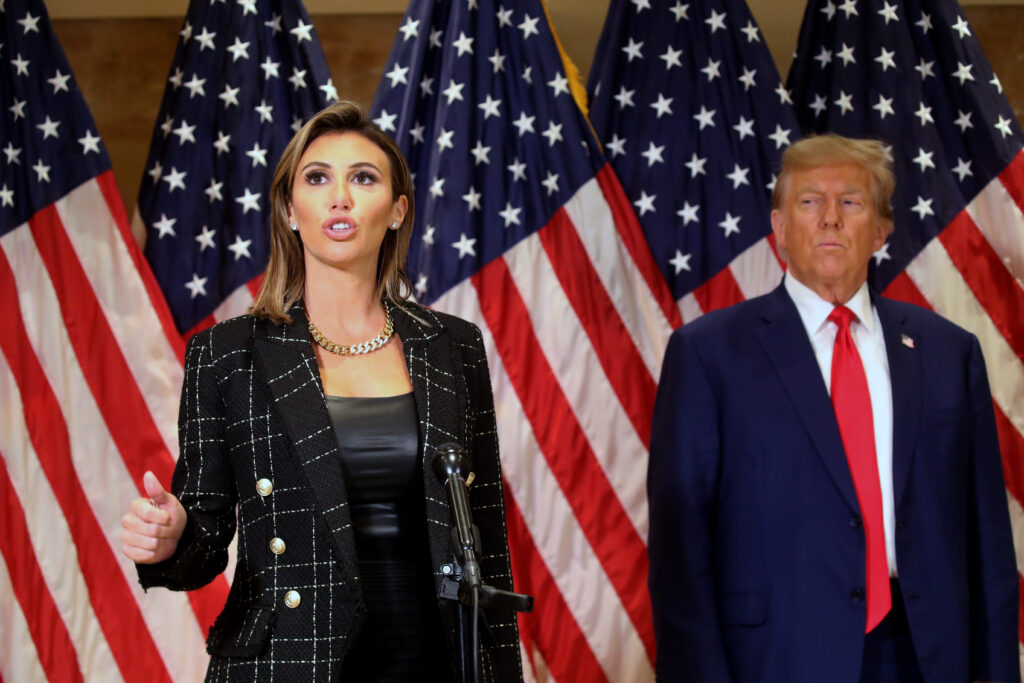Letitia James, Blocked From Seizing Trump’s Trophy Assets, Sues Over Bond Supplied by ‘King of Subprime Car Loans’
Ms. James, who successfully sued the Trump Organization for fraud, wants Judge Arthur Engoron to throw out the bond which would allow her to seize assets like Trump Tower.

New York’s attorney general, Letitia James, is asking a court to deny the bond President Trump secured for his appeal of the verdict in his recent civil fraud trial, reinstating the possibility of her seizing Mr. Trump’s assets.
“The People respectfully request that the Court,” Mr. James and her attorneys wrote in a filing on Friday, “declare the Bond to be without effect, and order that any replacement bond be posted within seven (7) days, along with such other and further relief the Court deems necessary and appropriate.”
The 26-page long motion, and the additional 14 exhibits, claims that Mr. Trump and the Los Angeles-based insurance company that posted the bond, had not demonstrated that the company had the resources to pay the bond in case Mr. Trump would lose the appeal, writing they “have failed to justify … the surety on this extraordinarily large undertaking for a number of reasons.”
Ms. James sued Mr. Trump, his two adult sons, two of his former employees — the Trump Organization’s longtime chief financial officer, Allen Weisselberg, and controller, Jeff McConney — and 10 of his companies for business fraud. She alleged that the Trumps falsified business records in a decades-long scheme to gain favorable bank loans and insurance policies.

A New York State Supreme Court judge, Arthur Engoron, who presided over the two-and-a-half months long trial last winter, found Mr. Trump and others guilty of business fraud in February and issued a $464-plus million award to the state.
In order to appeal the verdict, Mr. Trump had to secure a “surety,” which is a legal agreement, not a money transfer, from a company, assuring New York’s court system that it would cover the judgment against Mr. Trump should he lose his appeal and not pay.
Defense attorneys asked the state’s intermediate appeals court to reduce the bond from more than $464 million to $100 million. Their request was first denied by a single judge. As the deadline to post the massive judgment neared, the defense asked the appeals court again, writing that Mr. Trump had undertaken “diligent efforts” and that “‘obtaining an appeal bond in the full amount of the Judgment is not possible under the circumstances presented.’”
In a major victory for Mr. Trump, a panel of five appellate court judges reduced the bond to $175 million in late March. That meant that Mr. Trump still owes the full $464-plus million judgment until his appeal is heard and decided, but he could begin the appeals process by securing only $175 million. And so he did on April 1.

“As promised, President Trump has posted bond,” one of his defense attorneys, Alina Habba, said in a statement. “He looks forward to vindicating his rights on appeal and overturning this unjust verdict.”
Mr. Trump’s securing of the bond blocked Ms. James, for now, from seizing his trophy assets in New York, such as Trump Tower on Fifth Avenue and his golf club in Briarcliff Manor.
The bond was underwritten by Knight Specialty Insurance (KSIC), a California-based insurance company founded by Don Hankey, a billionaire who made his fortune on subprime car loans. Three days after the bond was posted, the attorney general challenged the bond, writing that her office “takes exception to the sufficiency of the surety,” and that the California based company lacked “a certificate of qualification” required by New York Insurance Law Section 1111, meaning the company was not registered to issue appeal bonds in New York.
“After receiving this favorable ruling,” she repeated in Friday’s filing, “Defendants chose… a small insurer that is not authorized to write business in New York and thus not regulated by the state’s insurance department, had never before written a surety bond in New York… and has a total policyholder surplus of just $138 million.”

However, the defense and KSIC responded in a joint motion, offering several financial documents and an affirmation from a former New York State insurance expert as evidence that the bond was indeed acceptable under New York law.
Ms. James was not convinced. She raised three main issues. First, she questions the collateral agreement between Mr. Trump and KSIC. When a company posts a legal bond for a defendant, it charges the defendant, in this case Mr. Trump, a fee and some form of collateral.
According to Ms. James’s filing, “For collateral, the Donald J. Trump Revocable Trust (“Trust”) granted KSIC a priority lien on a Schwab brokerage account held by the Trust that Defendants maintain presently has just over $175 million in ‘cash.’”
One would think that there is no issue, since the bond is supposed to cover exactly that amount, $175 million. Yet Ms. James found that the agreement is flawed, because the insurance company does not hold “an exclusive” control over the account. Instead Mr. Trump “retains ownership” and can “withdraw funds or make trades in the account unless KSIC objects within two business days after receiving notice of the proposed transaction.” The word “after” is key here. Mr. Trump can transfer cash out of the account without having to give the insurance company prior notice. He only needs to notify them two days after the transfer has already taken place.

The agreement further states, as paraphrased by Ms. James, that if the value of the funds held in the account “dips below $175 million, the Trust promises to ‘true up’ the balance by depositing additional funds in multiple permitted forms, including stocks.” Ms. James found this assurance to be meaningless, or “hollow” as she worded it, because “if the Trust does not have the funds”, the collateral would “fluctuate based on market conditions.”
Secondly, Ms. James questioned the company’s “financial summary” which they had attached as evidence. It seems that KSIC “sends 100% of its retained insurance risk to affiliates in the Cayman Islands,” and this is problematic for Ms. James. She referred to the practice as “shadow insurance,” writing that “lax regulations” in the Cayman Islands allow companies to “artificially bolsters” their surplus.
Last but not least, Ms. James argued to disqualify KSIC because the company seems to have violated federal laws. The attorney general wrote that “its management has been found by federal authorities to have operated affiliated companies within KSIC’s holding company structure in violation of federal law on multiple occasions within the past several years.”
Mr. Trump’s defense attorneys had not filed a response by Saturday evening, and made no public statements.

Judge Engoron scheduled a hearing on the matter for Monday, the same day that opening statements will be held down the street at the criminal court for Mr. Trump’s hush-money trial.

